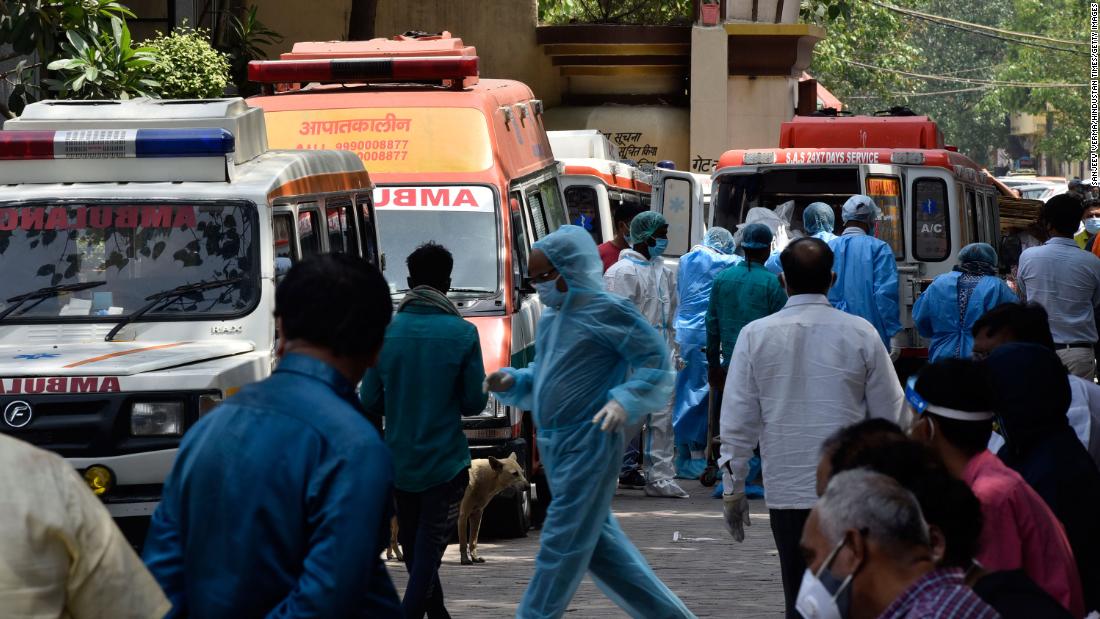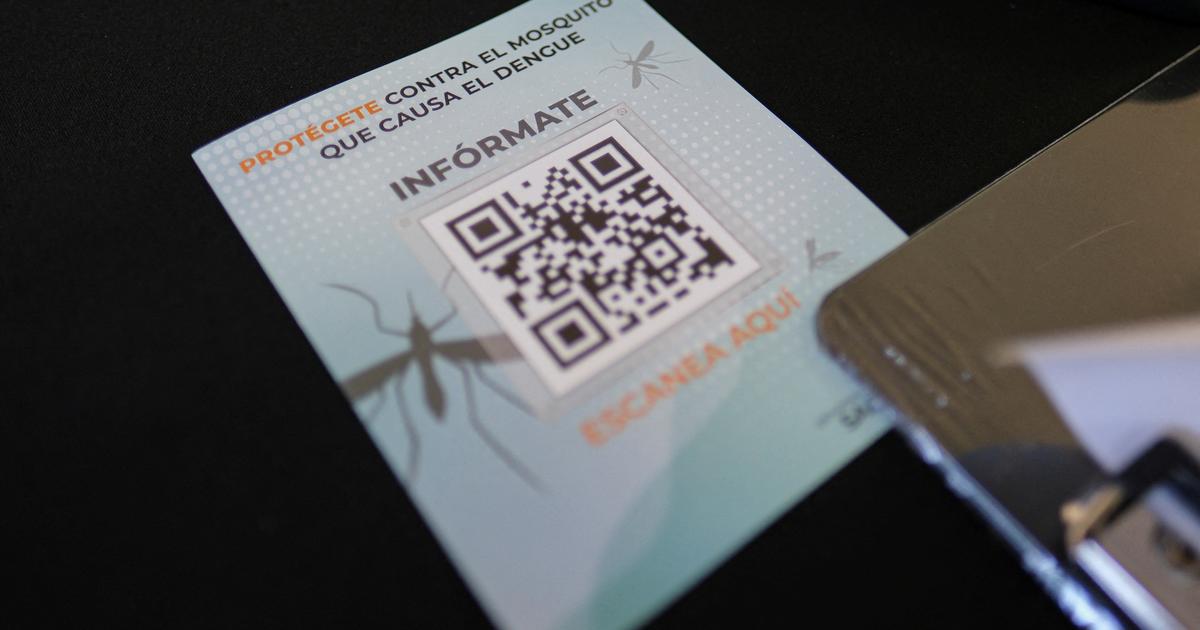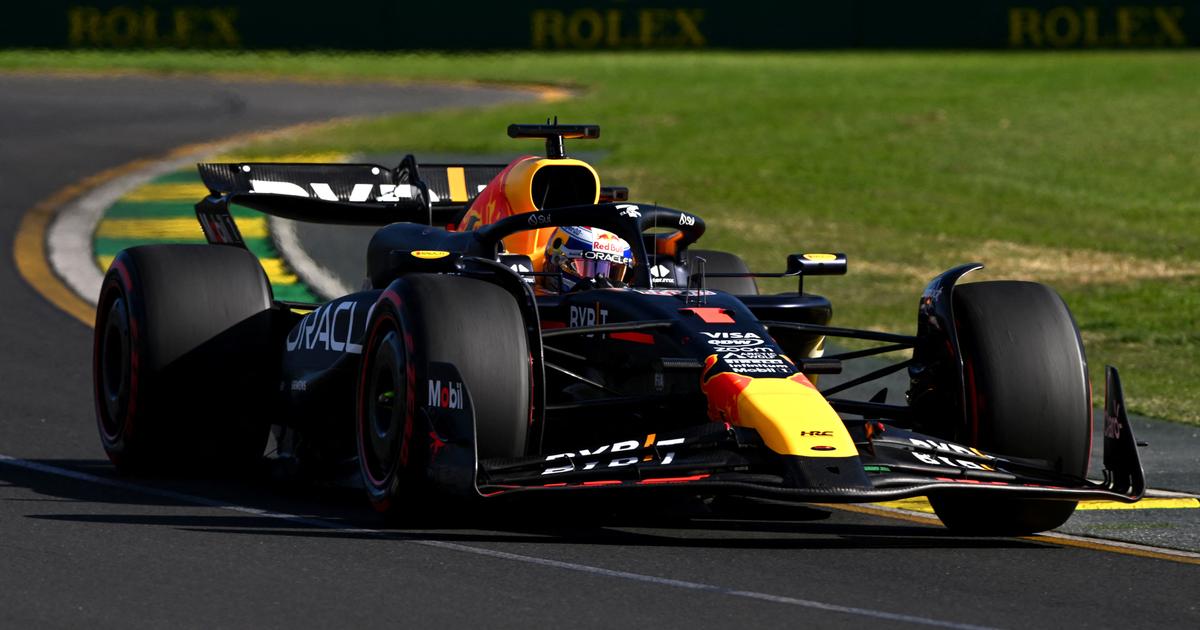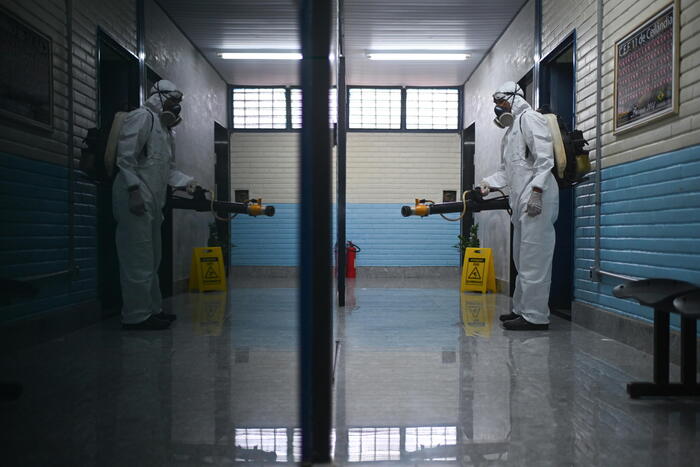Drone captures mass cremations in India 2:03
(CNN) -
India reported 346,786 new cases of covid-19 on Saturday, the third day in a row that the country has set a world record for infections during the coronavirus pandemic, according to government and scientific data.
The death toll reported during the previous 24 hours reached 2,624, also a daily record for India, with a total of 189,544 deaths.
Rising Covid-19 infections plague Indian communities and hospitals.
Everything is in short supply: beds in intensive care units, medicines, oxygen and ventilators.
The bodies are piled up in morgues and crematoriums.
Dead bodies pile up in India during the second wave of covid-19 in the country
Twenty critically ill patients died at a Delhi hospital on Friday night after their oxygen supply was delayed seven hours, according to Dr. DK Baluja, medical director of Jaipur Golden Hospital.
That happened last night.
Everything we had was sold out.
The oxygen was not delivered on time.
It was supposed to arrive at 5 in the afternoon, but it arrived around midnight.
Sick and critically ill people needed oxygen, "said Baluja.
advertising
Currently, the hospital is struggling to get more oxygen, but has not received a new supply all Saturday morning.
“Right now we only have 15-20 minutes of oxygen left.
It can take hours to get another tank, "Baluja told CNN.
Hospitals in Delhi have faced severe oxygen shortages as the number of COVID-19 cases has skyrocketed in the national capital in the past two weeks.
On Saturday morning, Moolchand Hospital tweeted an emergency message to the Delhi government asking for oxygen.
"Urgent help.
SOS.
We have less than 2 hours of oxygen supply @Moolchand_Hosp.
We are desperate […] We have more than 135 COVID patients with many on life support, ”the tweet reads.
Second wave of covid-19 in India leaves overflowing hospitals and drug shortages
Delhi recorded 24,331 new cases on Friday, including 348 deaths, according to the Covid-19 health bulletin issued by the Delhi government.
More than 16.6 million cases have been recorded across the world since the start of the pandemic, a CNN tally of figures from the Indian Ministry of Health reveals.
Saturday's new infection count represents the highest number of cases recorded in a single day anywhere in the world.
Before India's three-day streak of record infections, the world's highest in one day was the 300,310 cases recorded in the US on January 2, according to a CNN tally of figures from John Hopkins University.
India's population is roughly four times that of the US, and its daily cases are still below the US when adjusted for population size (in cases per million people).
"We are going through practically the worst possible phase of the pandemic here," Chandrika Bahadur, chair of the Lancet Commission on covid-19 India, said on Wednesday.
Record rise in covid-19 depletes oxygen in India 3:46
Hospital fire kills 15 patients
Compounding the tragedy in India, a fire in a hospital intensive care unit in Virar, a city north of Mumbai, killed at least 15 coronavirus patients, a senior local administration official told CNN.
"Suddenly, sparks fell from the air conditioning and within two minutes it was on fire," Dr. Dilip Shah, from the Vijay Vallabh Covid Care Hospital, told reporters on Friday.
The fire came two days after 24 coronavirus patients died waiting for oxygen at the Zakir Hussain Hospital in the Nashik district of Maharashtra after an accidental oxygen leak, according to Suraj Mandhare, a senior Nashik district official.
Ministers of state and local authorities, including those in Maharashtra, have warned of the second wave and prepared actions since February.
On the contrary, there appears to be a leadership vacuum within the central government, and Prime Minister Narendra Modi remained largely silent on the situation until recent weeks.
It wasn't until Tuesday that Modi finally emphasized the urgency of the situation and presented new measures in a speech to the nation late at night.
"The country is once again waging a very great battle against covid-19," he said.
"A few weeks ago, conditions had stabilized, and then came the second wave."
But by then, the Indian outbreak was already the largest in the world in terms of absolute daily numbers.
Almost 28% of all new cases worldwide in the last week came from India, according to the World Health Organization.
Experts and healthcare workers say the public let their guard down with a false sense of security after the first wave subsided, which is why the second wave advanced so rapidly, but this complacency was exacerbated by government officials like Modi. and Health Minister Harsh Vardhan, who loudly celebrated the country's apparent recovery.
The leaders did little to discourage public gatherings, allowing a massive week-long Hindu pilgrimage to continue with millions of attendees traveling through numerous states.
Top advisor defends the government's response
K. VijayRaghavan, chief scientific adviser to the Indian government, told CNN on Friday that no one foresaw "the extent of the increase" in cases to which "some anticipated and some unanticipated factors" had contributed.
He defended the government's handling of the crisis, saying that "the increase is of such a level that no matter how much health care capacity is increased or increased after the first wave, this is still not enough."
VijayRaghavan, who is also co-chair of India's Covid-19 Vaccines Task Force, admitted that the provision of personal protective equipment, ventilators, hospital facilities and vaccine production needed to be "vastly increased."
Arguing that local containment, rather than national confinement, was the way to deal with the situation, he said measures should be taken to "prevent interactions from those regions where there are large waves with other places."
VijayRaghavan said the lack of oxygen availability had had "a terribly large impact on some cities," but said the government will increase the manufacture, import and distribution of oxygen and expected to start seeing results soon.
He added that India would resume supplying doses of vaccines to the rest of the world as the situation stabilized.
'India is committed, even in this crisis, to expanding vaccine development.
We have a great challenge in increasing that here, what we are doing, and as our crisis subsides, we will also open ourselves to others, "he said.
CNN's Sugam Pokharel, Esha Mitra, and Robert North contributed to this report.








